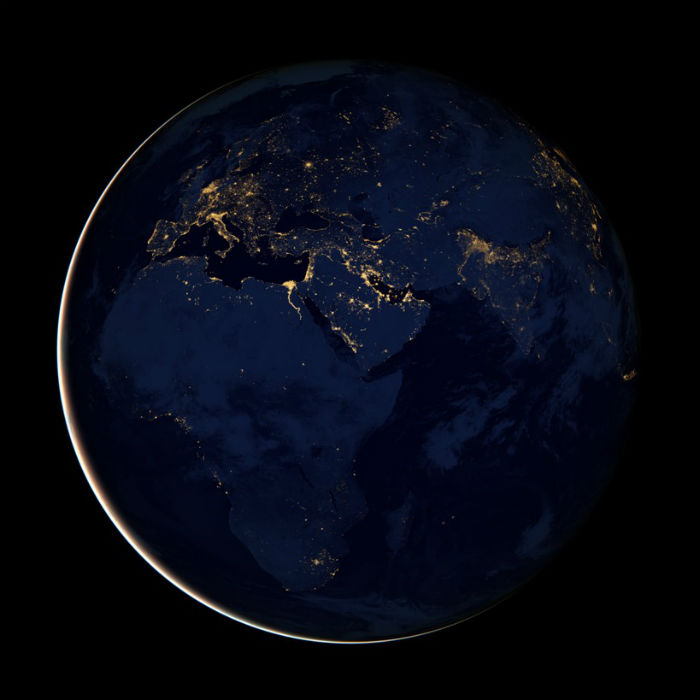Cameroon case study: Feowl – a community-driven open data platform assessing electricity supply in Douala
 NASA Earth Observatory
NASA Earth Observatory
Click here for a French language version of this post
Looking at this map of the Earth at night published by Nasa on its website, I am struck by an interesting observation: with only a few points of light, Africa is literally the dark continent, in terms of citizen’s access to and consumption of civil energy. This is quite paradoxical. Indeed, it is not as if the continent doesn’t produce energy : oil, uranium are largely exported, solar energy is a conceivable possibility, and Africa’s hydropower potential is among the world’s most promising ones. In 2009, the electrification rate in Sub saharan Africa was only 30.5%, half less in rural areas (14,2%). Those who have access to electricity suffer from frequent and untimely power cuts.
Although several projects are currently underway on the continent to increase the energy production, no proper assessment of the situation and of the energy demand has been made to date. To understand, quantify and geolocalise the information on the energy demand in emerging large cities of Sub-Saharan Africa is now a necessity for anyone who wants to give relevant solutions to tackle the issue. This is the final aim of the project Feowl (read fuel). Based on the idea that what can be measured can be changed, Feowl is an open source platform that produces reliable and actionnable public data on the lack of electricity in Douala, the economic capital city of Cameroon.
How does it work ? Feowl allows its contributors to report powercuts via SMS and web. The specificity of this project lies in the fact that Feowl mixes crowdsourcing and polling methods to produce the most accurate and relevant data. A panel of contributors is selected and polled daily, weekly or monthly by Feowl. The platform goes to each user to ask how many power cuts they have withnessed, and where it happened. Feowl went live in its beta version on November 28, 2012. So far, 26 beta-users have provided us with information on their power cuts experience. Feowl aims at reaching 100 contributors, spread on the 5 districts of Douala to have a sufficiently representative panel. The challenge at the moment is to enable citizens to interact with the platform via SMS, without this being expensive for contributors. So far the team has decided to reimburse contributions, but the aim eventually is to have SMSs free of charge for users.
Why ask electricity users to assess the energyEnsuring universal access to sustainable, dependable, and affordable energy is critical to every aspect of prosperity. Increasing public oversight and transparency in the energy sector can help to ens... More demand ? This is the first phase of the project, and it is ongoing. By identifying the frequency, location and length of power shortages, with the help of citizens, we will have a first real assessment of the lack of energy in relation to demand. A second phase will allow to measure the social and economic impact of these shortages : how many businesses had to stop working because of a powercut and how much this lack of activity costs to the city, for example. Another important aspect motivates this inclusionOGP participating governments are working to create governments that truly serve all people. Commitments in this area may address persons with disabilities, women and girls, lesbian, gay, bisexual, tr... More of citizens in the process : at Feowl, we are not fond of top-down approaches, and we assume that if they are to be electricity infrastructure projects, citizens undoubtedly have essential elements to bring to the debate. In fact, they are the ones who know what electricity supply is like in Douala, and their help is essential to providing data that is currently lacking or is not sufficiently accurate.
Can I use Feowl? Feowl is an open source tool via github. The platform can be freely reused and modified to measure electricity or water problems, but also the quality of a wide variety of public services. Feowl is currently looking for partners to help continue to develop the project.
Read more on the Feowl blog.
